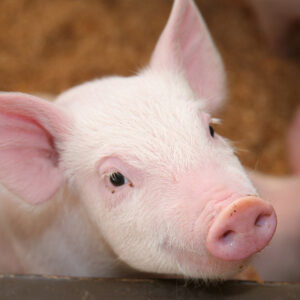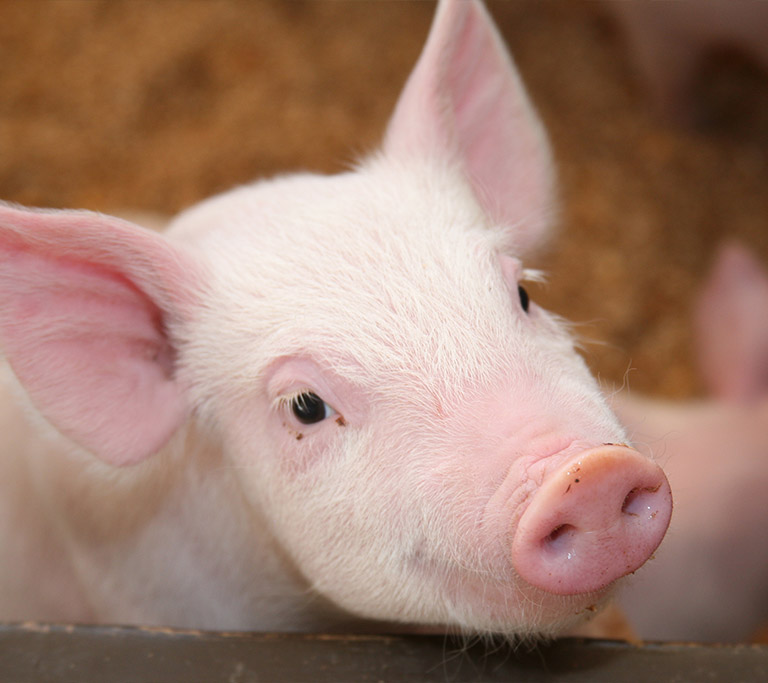


VestAmino® Trp
Tryptophan
Tryptophan is an essential amino acid that plays a crucial role in pig nutrition. Including L-Tryptophan in pig diets offers several benefits. Here’s an overview of its role and the benefits of using L-Tryptophan in pig diets:
- Serotonin production and stress management: L-Tryptophan is a precursor for the synthesis of serotonin, a neurotransmitter involved in mood regulation and stress management. Supplementing pig diets with L-Tryptophan can help support serotonin production, promoting a positive mood and reducing stress responses in pigs. This can be particularly beneficial during stressful periods such as weaning or transportation.
- Growth performance and feed efficiency: L-Tryptophan is essential for pigs’ optimal growth and feed efficiency. It is involved in protein synthesis and the production of growth-promoting hormones. Adequate levels of L-Tryptophan in the diet support efficient protein synthesis, leading to improved growth rates and better feed conversion ratios in pigs.
- Carcass composition and meat quality: L-Tryptophan plays a role in the deposition of lean muscle mass and the composition of carcasses in pigs. It contributes to the formation of high-quality meat with desirable characteristics such as tenderness and flavour. Including sufficient levels of L-Tryptophan in the diet can help improve carcass composition and meat quality in pigs.
- Immune function: L-Tryptophan is involved in supporting immune function in pigs. It is a precursor for the production of niacin and other molecules involved in immune responses. Adequate levels of L-Tryptophan in the diet support a robust immune system, helping pigs maintain health and resist diseases.
- Behaviour and welfare: L-Tryptophan is linked to pigs’ behaviour and welfare regulation. It plays a role in the production of serotonin and other neurotransmitters that influence mood, behaviour, and overall well-being. Supplementing with L-Tryptophan can improve pigs’ behavioural responses and overall welfare.
It’s important to ensure that L-Tryptophan is provided in appropriate amounts in pig diets to meet the specific requirements of the animals. L-Tryptophan can be supplemented in the form of crystalline L-Tryptophan or as part of protein-rich feed ingredients. Careful attention should be given to the sourcing and quality of L-Tryptophan supplements to ensure their effectiveness and suitability for pig nutrition. L-Tryptophan in pig diets supports serotonin production, stress management, growth performance, feed efficiency, carcass composition, meat quality, immune function, behaviour, and welfare. It is an essential nutrient that plays a vital role in various physiological processes and should be considered an integral part of pig nutrition.




